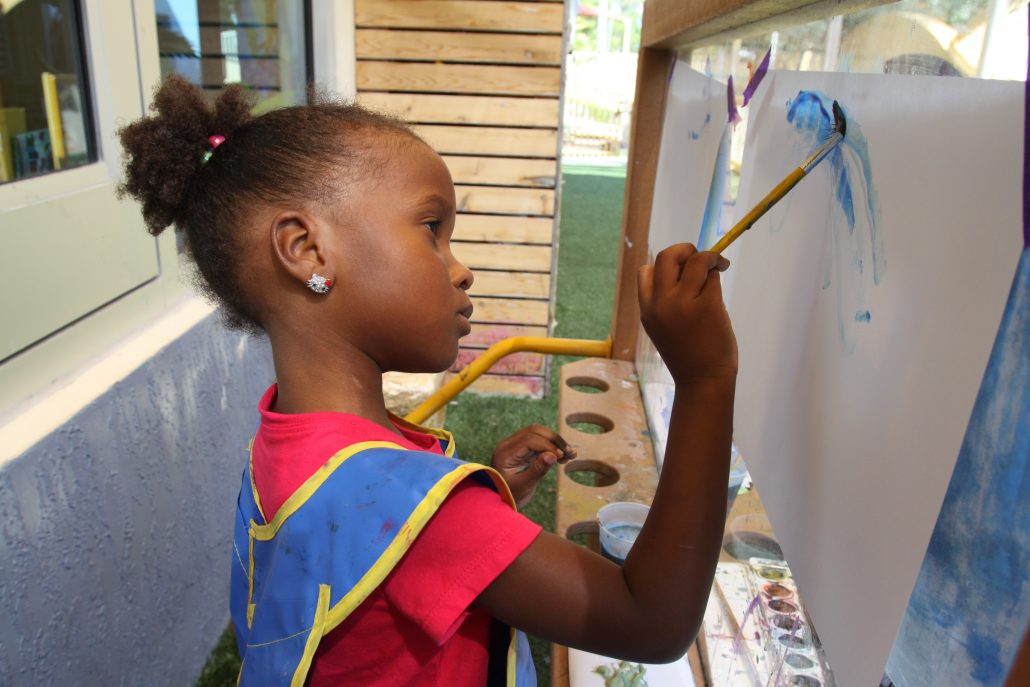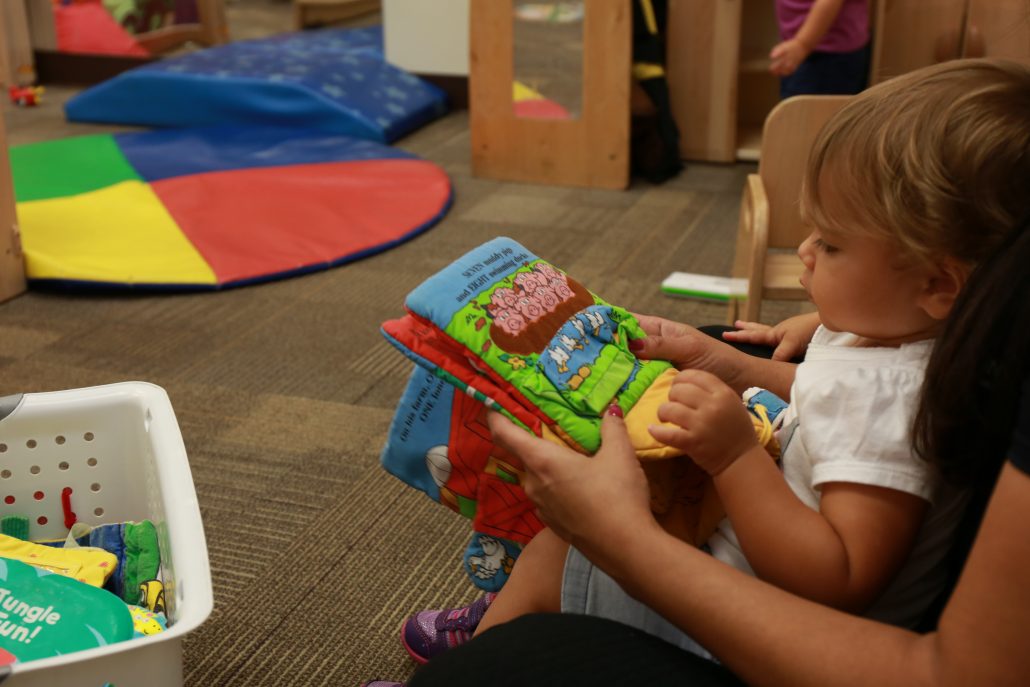
Early Learning Florida (ELF) is setting the path to success by focusing on the role of early learning educators. ELF provides online, interactive courses that supply early childhood educators with research-based instructional practices, knowledge, and resources to alleviate the gap in professional support.
To some, it may look like chaos: 3 year-olds wearing oversized smocks in various stages of painting, chatting with each other and their teacher, Susan Weaver. Weaver, an 18-year veteran as an early learning educator in Florida, knows her children are not just painting. They are learning foundational skills that will remain with them throughout their lives.
“Whether they’re introduced to a new color, shape, number or phrase, children are on an ongoing learning journey, and I love being a part of that,” Weaver says.
The first years of a child’s life are an explosion of cognitive activity. Each second, 700 new neural connections are formed. By age 5, over 90 percent of a child’s cognitive development has been completed.

To thrive, children must engage in educational and nurturing interactions with adults from birth; The problem is that less than half of Florida’s children have access to high-quality early learning environments.
For that reason, the University of Florida Lastinger Center for Learning, a national leader in developing innovative educational models, set out to learn about the challenges and needs of Florida’s 55,000 early learning professionals. Dozens of interviews, phone calls and focus groups shined light on the reality that early learning professionals are often underprepared, underpaid and inadequately supported.
Don Pemberton, director of the Lastinger Center, realized the urgency to identify what resources early childhood educators need to improve their skills and practices and child outcomes. Thus Early Learning Florida was launched in 2014.

Early Learning Florida is a first-of-it-kind, statewide professional learning system that offers online, interactive courses to assist teachers of our youngest children in earning credentials and certifications. To reach dual-language practitioners, courses are available in both English and Spanish. Additional custom-built resources and supports, including targeted strategies and an online coaching certification, are being developed.
“Early Learning Florida’s courses introduced me to incredibly useful information and strategies I could immediately implement into my daily work,” Weaver said. “Because the courses are offered online, I was able to continue with my everyday routine while learning at my convenience.”
Pemberton says Early Learning Florida is emerging as a national prototype for professional development that helps early learning educators to elevate their teaching, careers and learning communities.
The system is currently utilized by all Florida counties and, due to its success, has recently expanded to Georgia, Louisiana, Arizona, California, Kentucky and Texas. In only two years, Early Learning Florida has delivered over 100,000 hours of training to approximately 20,000 early childhood educators.
Through its partnership with the Yale University Child Study Center, Early Learning Florida is evaluated on a yearly basis. Researchers say the system so far has led to a 52 percent increase in adult-child interactions; program quality has increased by over half in centers with teachers using the system; and pre- and post-test course assessments revealed a 43 percent increase in teacher knowledge.
“The consistent growth of Early Learning Florida is allowing thousands of practitioners–like Susan Weaver—to learn at their own pace,” Pemberton says, “so they can provide the highest quality education and care to children.”
 Early Childhood
Early Childhood
